-
收藏模板下载模板
- 模板信息
- 更新时间:2023-09-23
- 字数:约7248字
- 页数:约4页
- 格式:.docx
- 推荐版本:Office2016及以上版本
- 售价:5 金币 / 会员免费
您可能喜欢的文档

新人教版高中英语必修2Unit 5 Music-Discovering Useful Structures教案一
Step1:自主探究。1.(教材P52)Born(bear) in the USA on 2 January 1970, Whitacre began studying music at the University of Nevada in 1988.2.(教材P52) Moved(move) by this music, he said, “It was like seeing color for the first time.”3.(教材P56)I was very afraid and I felt so alone and discouraged(discourage).4.(教材P58)Encouraged(encourage) by this first performance and the positive reaction of the audience, I have continued to play the piano and enjoy it more every day.Step2:语法要点精析。用法1:过去分词作表语1).过去分词可放在连系动词be, get, feel, remain, seem, look, become等之后作表语,表示主语所处的状态Tom was astonished to see a snake moving across the floor.汤姆很惊讶地看到一条蛇正爬过地板。Finally the baby felt tired of playing with those toys.终于婴儿厌倦了玩那些玩具。注意:1).过去分词作表语时与被动语态的区别过去分词作表语时,强调主语所处的状态;而动词的被动语态表示主语是动作的承受者,强调动作。The library is now closed.(状态)图书馆现在关闭了。The cup was broken by my little sister yesterday.(动作)昨天我妹妹把杯子打碎了。2)感觉类及物动词的现在分词与过去分词作表语的区别过去分词作表语多表示人自身的感受或事物自身的状态,常译作“感到……的”;现在分词多表示事物具有的特性,常译作“令人……的”。
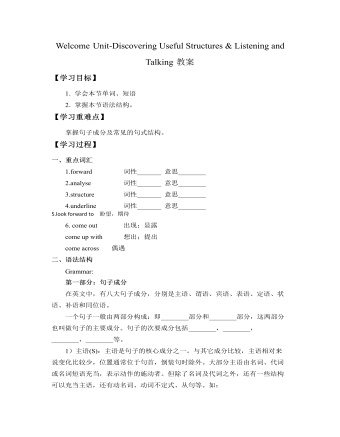
新人教版高中英语必修1Welcome Unit-Discovering Useful Structures & Listening and Talking教案
常跟双宾语的动词有:(需借助to的)bring, ask, hand, offer, give, lend, send, show, teach, tell, write, pass, pay, promise, return等;基本句型 五S +V + O + OC(主+谓+宾+宾补)特点:动词虽然是及物动词,但是只跟一个宾语还不能表达完整的意思,必须加上一个补充成分来补足宾语,才能使意思完整。 判断原则:能表达成—宾语 是…/做…注:此结构由“主语+及物的谓语动词+宾语+宾语补足语”构成。宾语与宾语补足语之间有逻辑上的主谓关系或主表关系,若无宾语补足语,则句意不够完整。可以用做宾补的有:名词,形容词,副词,介词短语,动词不定式,分词等。如:He considers himself an expert on the subject.他认为自己是这门学科的专家。We must keep our classroom clean.我们必须保持教室清洁。I had my bike stolen.我的自行车被偷了。We invited him to come to our school.我们邀请他来我们学校。I beg you to keep secret what we talked here.我求你对这里所谈的话保密。用it做形式宾语,而将真正的宾语放到宾语补足语的后面,以使句子结构平衡,是英语常用的句型结构方式。即:主语+谓语+it+宾补+真正宾语。如:We think it a good idea to go climb the mountain this Sunday.
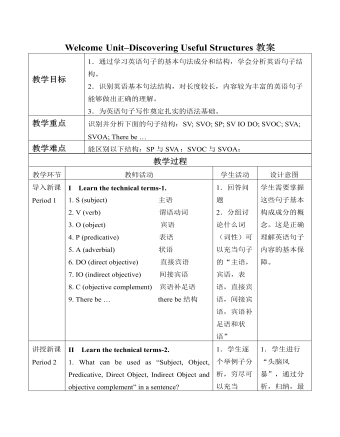
新人教版高中英语必修1Welcome Unit-Discovering Useful Structures教案
II Learn the technical terms-2.1. What can be used as “Subject, Object, Predicative, Direct Object, Indirect Object and objective complement” in a sentence?2. What can be used as “adverbial” in a sentence?3. What can be used as “verb” in a sentence?Answers to questions 1-3:1. Nouns, pronouns and appellations can be used as “Subject, Object, Predicative, Direct Object, Indirect Object and Objective Complement”. Besides, adjectives can be used as “Predicative and Objective Complement” in a sentence.2. Adverbs and prepositional phrases can be used as “Adverbial”.3. Verbs with actual meaning can be used as “Verb” in a sentence. Auxiliary verbs alone cannot be used as “Verb” in a sentence.III Learn to recognize the sentence structures.1. SV structure. For Example:(1) A bird flies.S V(2) A monkey jumps.S V(3) A fish swims.S V√ In SV structures, verbs are “intransitive verbs”.2. SVO structure. For Example:(1) A sheep eats grass.S V O(2) They like bananas.S V O(3) He wants candy.S V O√ In SVO structures, verbs are “transitive verbs”.3. SP structure. For Example:(1) This is great.S P (2) He looks well.S P (3) She became a teacher.S P √ In SP structures, Predicatives are formed by “link verbs” and “adjectives or nouns”.√ link verbs: be, become, grow, look, feel, taste, etc.4. SV IO DO structure. For Example:(1) He asked me a question.S V IO DO(2) Danny wrote me a letter.S V IO DO(3) Billy brought Sam a kite.S V IO DO√ In SV IO DO structures, the verbs are transitive and are followed by two objectives – pronouns or nouns as Indirect Objective, and nouns as Direct Objectives.
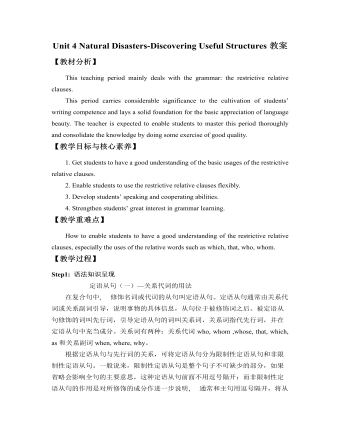
新人教版高中英语必修1Unit 4 Natural Disasters-Discovering Useful Structures教案
【教材分析】This teaching period mainly deals with the grammar: the restrictive relative clauses.This period carries considerable significance to the cultivation of students’ writing competence and lays a solid foundation for the basic appreciation of language beauty. The teacher is expected to enable students to master this period thoroughly and consolidate the knowledge by doing some exercise of good quality.【教学目标与核心素养】1. Get students to have a good understanding of the basic usages of the restrictive relative clauses.2. Enable students to use the restrictive relative clauses flexibly.3. Develop students’ speaking and cooperating abilities.4. Strengthen students’ great interest in grammar learning.【教学重难点】How to enable students to have a good understanding of the restrictive relative clauses, especially the uses of the relative words such as which, that, who, whom.【教学过程】Step1: 语法知识呈现定语从句(一)—关系代词的用法在复合句中, 修饰名词或代词的从句叫定语从句。定语从句通常由关系代词或关系副词引导,说明事物的具体信息,从句位于被修饰词之后。被定语从句修饰的词叫先行词,引导定语从句的词叫关系词,关系词指代先行词,并在定语从句中充当成分。关系词有两种:关系代词who, whom ,whose, that, which, as和关系副词when, where, why。

新人教版高中英语必修2Unit 2 Wildlife Protection-Discovering Useful Structure教案二
2.表示现阶段正在进行的被动动作(该动作在说话的瞬间未必正在进行)。Many interesting experiments are being carried out these days.(说话时,并不一定正在进行)3.表示一种经常性的被动行为,常和always,constantly 等表示频度的副词连用,这种用法常常带有赞扬或厌恶的感情色彩。He is always being praised by the leader.4.表示按计划或安排主语将要承受谓语动词所表示的动作(仅限于少数及物动词)。A party is being held tonight.Step 4 Special cases1.像take care of, look after, talk about, think of等动词与介词构成的短语用于现在进行时的被动语态时, 其中的介词不可省略。The ways to stop illegally hunting are being talked about. 2.可与部分情态动词连用,表示对正在发生的事情的推测。She may be being punished by her mother.3.有时可表示按计划或安排将要进行的一个被动动作。A celebration is being held this weekend for his success.4.某些表示“状态、心理活动、存在”等的动词,如have,want,need,love,一般不用现在进行时的被动语态,而常用一般现在时的被动语态。With the population increasing,more land is needed.5.“be+under/in+n.”可表示现在进行时的被动意义。My computer is under repair.=My computer is being repaired.
- 查看更多相关Word文档
Unit 5 Music-DiscoveringUseful Structures教案
The Past Participle as Adverbial教学设计
In the Reading andThinking, there are three sentences with the past participle as adverbial. Itis important but difficult to understand. To solve the problem, we can combineit with omitting sentences. Thus, students are easily guided to understand thepast participle and their functions.

1.Understand theadverbial clauses and the omitting sentences;learn the functions of adverbial clauses.
2.Observe the sentencesand structures and try to get rules and functions.
3.Understand thepast participle as adverbial can be used to express feelings and describesituations.
1.Understand theadverbial clauses and the omitting sentences; learn the functions of adverbialclauses.
2.Understand thepast participle as adverbial can be used to express feeling and describesituations.
Step 1 Lead in
Observe the three sentences from the Readingand Thinking. Read them and translate them into Chinese.
1.Born in the USA on 2 January 1970, Whitacre began studying music at the Universityof Nevada in 1988.
__________________________________________________________________________
2.Moved by this music, he said, “It was likeseeing color for the first time.”
__________________________________________________________________________
3.Inspired, he asked his fans to make videos.
__________________________________________________________________________
Step 2 Read them and change the underlineinto adverbial clauses.
1.Bornin the USA on 2 January 1970, Whitacre beganstudying music at the University of Nevada in 1988.
_____________________________________, Whitacre began studying music atthe University of Nevada in 1988.
2.Movedby this music, he said, “It was like seeing color for thefirst time.”
____________________________________, hesaid, “It was like seeing color for the first time.”
3.Inspired, he asked his fans to make videos.
____________________________________, he asked his fans to make videos.
From above examples, we can find the clausesare omitting sentences. The subjects and the predicates of the clauses are thepassive relationship.
There are some special situations. They arenot passive relationship, but are just fixed collocation, such as: be lost in,be based on, be devoted to, be located/situated in/on…, be worried about, betired of, be dressed in, be satisfied with, be faced with, etc.
1.Worried about the journey, I was unsettledfor a few days.
2.Lost in deep thought, he didn’t hear the sound.
3.Faced with the difficulties, they didnt giveup.
Step 3 Understand the functions
1.Bornin the USA on 2 January 1970, Whitacre beganstudying music at the University of Nevada in 1988.
When he was born in the USA on 2January, Whitacre began studying music at the University of Nevada in 1988.
The clause is used to be as thetime adverbial, so the past participle is also used to express time, that is,the time adverbial.
2.Movedby this music, he said, “It was like seeing color for thefirst time.”
After he was moved bythis music, he said, “It was like seeing color for thefirst time.”
The clause is used to be as the timeadverbial, so the past participle is also used to express time, that is, thetime adverbial.
3.Inspired, he asked his fans to make videos.
Because/When he was inspired,he asked his fans to make videos.
The clause is used to be as thetime or reason adverbial, so the past participle is also used to express timeor reason, that is, the time or reason adverbial.
4.Grownin rich soil, the seeds can grow fast.
If the seeds are grown in richsoil,the seeds can grow fast.
The clause is used to be as thecondition adverbial, so the past participle is also used to be the conditionadverbial.
5.He stood there silently, moved to tears.
He stood there silently and wasmoved to tears.
The clause is used to be asthe accompany adverbial, so the past participle is also used to be theaccompany adverbial.
6.Defeatedagain, he didnt lose heart.
Though he was defeated again,he didnt lose heart.
The clause is used to be as the concessionadverbial, so the past participle is also used to be the concession adverbial.
Step 4 Practice
Rewrite the story using past participles asthe the adverbial.
Example: The Silver Hall is usually used for singing performances and is fullof cheers and energy.
PP(past participle)as adverbial: Usually used for singing performances, theSilver Hall is full of cheers and energy.
Function: as the reason adverbial
1.Henry was highly interested in music andbegan to write original compositions when he was in high school.
PPas adverbial: _________________________________________________________________.
Function: _______________________________________________________________________.
2.They were pleasedwith his music and songs and finally invited him to perform in the Silver Hall.
PPas adverbial: _________________________________________________________________.
Function: _______________________________________________________________________.
3. Though he wasaffected by gradual blindness soon after the performance, Henry was stillcapable of writing compositions and he found that creating music was a reliefand cure for his illness.
PPas adverbial: _________________________________________________________________.
Function: _______________________________________________________________________.
4. When he gotabsorbed in his world of music, he felt as if he could “see” the beauty of theworld around him, like he had in his previous life.
PPas adverbial: _________________________________________________________________.
Function: _______________________________________________________________________.
Step 5 Solid
Complete thepassage with the words in brackets in their correct forms.
Well known as a successfulband, the Impact members show quite a few striking qualities.转载请注明出处!本文地址:
https://www.lfppt.com/worddetails_36075139.html最新课件教案文档
-

精选高中生期末评语
1、该生学习态度端正 ,能够积极配合老师 ,善于调动课堂气氛。 能够积极完成老师布置的任务。学习劲头足,听课又专注 ,做事更认 真 ,你是同学们学习的榜样。但是,成绩只代表昨天,并不能说明你 明天就一定也很优秀。所以,每个人都应该把成绩当作自己腾飞的起 点。2、 你不爱说话 ,但勤奋好学,诚实可爱;你做事踏实、认真、为 人忠厚 ,是一个品行端正、有上进心、有良好的道德修养的好学生。在学习上,积极、主动,能按时完成老师布置的作业,经过努力 ,各 科成绩都有明显进步,你有较强的思维能力和学习领悟力,学习也有 计划性,但在老师看来,你的潜力还没有完全发挥出来,学习上还要有持久的恒心和顽强的毅力。
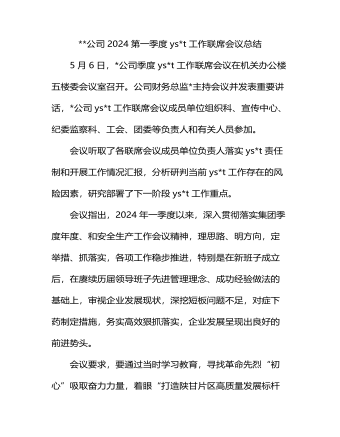
公司2024第一季度意识形态工作联席会议总结
一是要把好正确导向。严格落实主体责任,逐条逐项细化任务,层层传导压力。要抓实思想引领,把理论学习贯穿始终,全身心投入主题教育当中;把理论学习、调查研究、推动发展、检视整改等有机融合、一体推进;坚持学思用贯通、知信行统一,努力在以学铸魂、以学增智、以学正风、以学促干方面取得实实在在的成效。更加深刻领会到******主义思想的科学体系、核心要义、实践要求,进一步坚定了理想信念,锤炼了政治品格,增强了工作本领,要自觉运用的创新理论研究新情况、解决新问题,为西北矿业高质量发展作出贡献。二是要加强应急处事能力。认真组织开展好各类理论宣讲和文化活动,发挥好基层ys*t阵地作用,加强分析预警和应对处置能力,提高发现力、研判力、处置力,起到稳定和引导作用。要坚决唱响主旋律,为“打造陕甘片区高质量发展标杆矿井”、建设“七个一流”能源集团和“精优智特”新淄矿营造良好的舆论氛围。三是加强舆情的搜集及应对。加强职工群众热点问题的舆论引导,做好舆情的收集、分析和研判,把握时、度、效,重视网上和网下舆情应对。
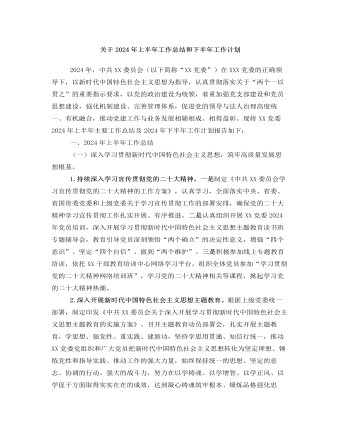
关于2024年上半年工作总结和下半年工作计划
二是深耕意识形态。加强意识形态、网络舆论阵地建设和管理,把握重大时间节点,科学分析研判意识形态领域情况,旗帜鲜明反对和抵制各种错误观点,有效防范处置风险隐患。积极响应和高效落实上级党委的决策部署,确保执行不偏向、不变通、不走样。(二)全面深化党的组织建设,锻造坚强有力的基层党组织。一是提高基层党组织建设力量。压实党建责任,从政治高度检视分析党建工作短板弱项,有针对性提出改进工作的思路和办法。持续优化党建考核评价体系。二是纵深推进基层党建,打造坚强战斗堡垒。创新实施党建工作模式,继续打造党建品牌,抓实“五强五化”党组织创建,广泛开展党员教育学习活动,以实际行动推动党建工作和经营发展目标同向、部署同步、工作同力。三是加强高素质专业化党员队伍管理。配齐配强支部党务工作者,把党务工作岗位作为培养锻炼干部的重要平台。
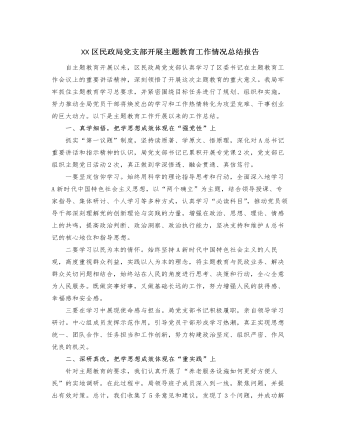
XX区民政局党支部开展主题教育工作情况总结报告
二要专注于解决问题。根据市委促进经济转型的总要求,聚焦“四个经济”和“双中心”的建设,深入了解基层科技工作、学术交流、组织建设等方面的实际情况,全面了解群众的真实需求,解决相关问题,并针对科技工作中存在的问题,采取实际措施,推动问题的实际解决。三要专注于急难愁盼问题。优化“民声热线”,推动解决一系列基层民生问题,努力将“民声热线”打造成主题教育的关键工具和展示平台。目前,“民声热线”已回应了群众的8个政策问题,并成功解决其中7个问题,真正使人民群众感受到了实质性的变化和效果。接下来,我局将继续深入学习主题教育的精神,借鉴其他单位的优秀经验和方法,以更高的要求、更严格的纪律、更实际的措施和更好的成果,不断深化主题教育的实施,展现新的风貌和活力。
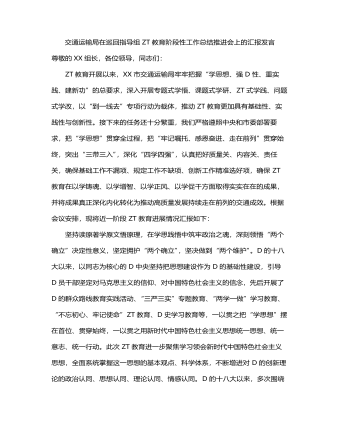
交通运输局在巡回指导组主题教育阶段性工作总结推进会上的汇报发言
今年3月,市政府出台《关于加快打造更具特色的“水运XX”的意见》,提出到2025年,“苏南运河全线达到准二级,实现2000吨级舶全天候畅行”。作为“水运XX”建设首战,谏壁闸一线闸扩容工程开工在即,但项目开工前还有许多实际问题亟需解决。结合“到一线去”专项行动,我们深入到谏壁闸一线,详细了解工程前期进展,实地察看谏壁闸周边环境和舶通航情况,不断完善施工设计方案。牢牢把握高质量发展这个首要任务,在学思践悟中开创建功之业,坚定扛起“走在前、挑大梁、多做贡献”的交通责任,奋力推动交通运输高质量发展持续走在前列。以学促干建新功,关键在推动高质量发展持续走在前列。新时代中国特色社会主义思想着重强调立足新发展阶段、贯彻新发展理念、构建新发展格局,推动高质量发展,提出了新发展阶段我国经济高质量发展要坚持的主线、重大战略目标、工作总基调和方法论等,深刻体现了这一思想的重要实践价值。
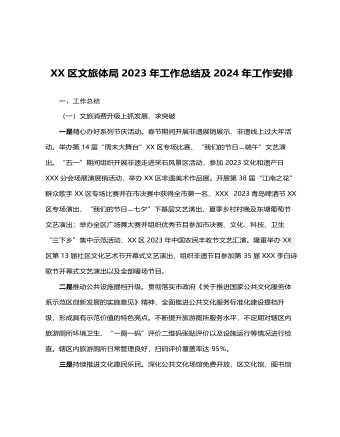
XX区文旅体局2023年工作总结 及2024年工作安排
三、2024年工作计划一是完善基层公共文化服务管理标准化模式,持续在公共文化服务精准化上探索创新,围绕群众需求,不断调整公共文化服务内容和形式,提升群众满意度。推进乡镇(街道)“114861”工程和农村文化“121616”工程,加大已开展活动的上传力度,确保年度目标任务按时保质保量完成。服务“双减”政策,持续做好校外培训机构审批工作,结合我区工作实际和文旅资源优势,进一步丰富我市义务教育阶段学生“双减”后的课外文化生活,推动“双减”政策走深走实。二是结合文旅产业融合发展示范区,全力推进全域旅游示范区创建,严格按照《国家全域旅游示范区验收标准》要求,极推动旅游产品全域布局、旅游要素全域配置、旅游设施全域优化、旅游产业全域覆盖。
今日更新Word
-

精选高中生期末评语
1、该生学习态度端正 ,能够积极配合老师 ,善于调动课堂气氛。 能够积极完成老师布置的任务。学习劲头足,听课又专注 ,做事更认 真 ,你是同学们学习的榜样。但是,成绩只代表昨天,并不能说明你 明天就一定也很优秀。所以,每个人都应该把成绩当作自己腾飞的起 点。2、 你不爱说话 ,但勤奋好学,诚实可爱;你做事踏实、认真、为 人忠厚 ,是一个品行端正、有上进心、有良好的道德修养的好学生。在学习上,积极、主动,能按时完成老师布置的作业,经过努力 ,各 科成绩都有明显进步,你有较强的思维能力和学习领悟力,学习也有 计划性,但在老师看来,你的潜力还没有完全发挥出来,学习上还要有持久的恒心和顽强的毅力。
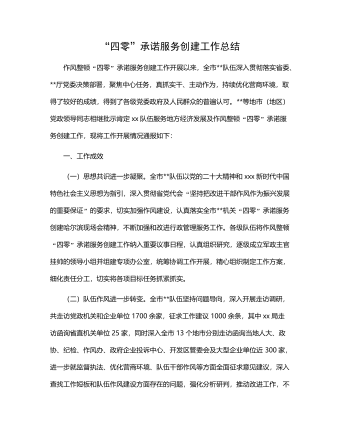
“四零”承诺服务创建工作总结
(二)坚持问题导向,持续改进工作。要继续在提高工作效率和服务质量上下功夫,积极学习借鉴其他部门及xx关于“四零”承诺服务创建工作的先进经验,同时主动查找并着力解决困扰企业和群众办事创业的难点问题。要进一步探索创新,继续优化工作流程,精简审批程序,缩短办事路径,压缩办理时限,深化政务公开,努力为企业当好“保姆”,为群众提供便利,不断适应新时代人民群众对政务服务的新需求。(三)深化内外宣传,树立良好形象。要深入挖掘并及时总结作风整顿“四零”承诺服务创建工作中形成的典型经验做法,进一步强化内部宣传与工作交流,推动全市创建工作质效整体提升。要面向社会和公众庄严承诺并积极践诺,主动接受监督,同时要依托电台、电视台、报纸及微信、微博等各类媒体大力宣传xx队伍作风整顿“四零”承诺服务创建工作成果,不断扩大社会知情面和群众知晓率。
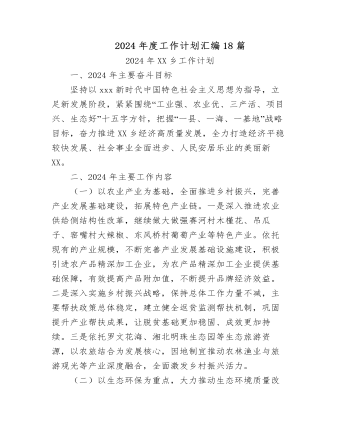
2024年度工作计划汇编(18篇)
1.市政基础设施项目5项,总建设里程2.13km,投资概算2.28亿元。其中,烔炀大道(涉铁)工程施工单位已进场,项目部基本建成,正在办理临时用地、用电及用水等相关工作;中铁佰和佰乐(巢湖)二期10KV外线工程已签订施工合同;黄麓镇健康路、纬四路新建工程均已完成清单初稿编制,亟需黄麓镇完成图审工作和健康路新建工程的前期证件办理;公安学院配套道路项目在黄麓镇完成围墙建设后即可进场施工。2.公益性建设项目6项,总建筑面积15.62万㎡,投资概算10.41亿元。其中,居巢区职业教育中心新建工程、巢湖市世纪新都小学扩建工程已完成施工、监理招标挂网,2月上旬完成全部招标工作;合肥职业技术学院大维修三期已完成招标工作,近期签订施工合同后组织进场施工;半汤疗养院净化和医用气体工程已完成招标工作;半汤疗养院智能化工程因投诉暂时中止;巢湖市中医院(中西医结合医院)新建工程正在按照既定计划推进,预计4月中下旬挂网招标。

驻村工作队2024年第一季度工作总结汇编(4篇)
三是做大做强海产品自主品牌。工作队于xx年指导成立的冬松村海产品合作社,通过与消费帮扶平台合作,在工作队各派出单位、社会团体、个人支持下,已获得逾xx万元销售额。2022年底工作队推动合作社海产品加工点扩建的工作方案已获批,待资金下拨后将正式启动扩建工作。四是积极助企纾困,带动群众增收致富。工作队利用去年建立的xx镇产业发展工作群,收集本地企业在产品销售、技术、人力、资金、运营、用地等方面的需求,并加大xx支持乡村振兴力度,xx助理赴各村委开展多场xx政策支持乡村振兴宣讲活动,本季度有x万元助农贷款获批,xx万贷款正在审批中。在壮大既有产业的同时,完善联农带农机制,一方面鼓励企业雇用本地农户就业,另一方面计划与本地农户签订长期收购合同,让农民种得放心、种得安心,带动当地群众共同致富。
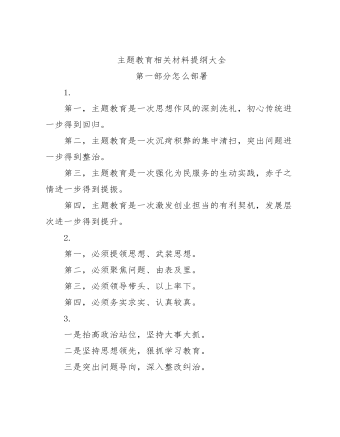
主题教育总结常用提纲大全
第一,主题教育是一次思想作风的深刻洗礼,初心传统进一步得到回归。第二,主题教育是一次沉疴积弊的集中清扫,突出问题进一步得到整治。第三,主题教育是一次强化为民服务的生动实践,赤子之情进一步得到提振。第四,主题教育是一次激发创业担当的有利契机,发展层次进一步得到提升。2.第一,必须提领思想、武装思想。第二,必须聚焦问题、由表及里。第三,必须领导带头、以上率下。第四,必须务实求实、认真较真。3.一是抬高政治站位,坚持大事大抓。二是坚持思想领先,狠抓学习教育。三是突出问题导向,深入整改纠治。四是坚持领导带头,发挥表率作用。4.一是立足“早”字抓筹划。二是着眼“活”字抓学习。三是围绕“统”字抓协调。5.一是形势所需。二是任务所系。三是职责所在。四是制度所定。6.一要提升认识。二要积极作为。三要密切协作。
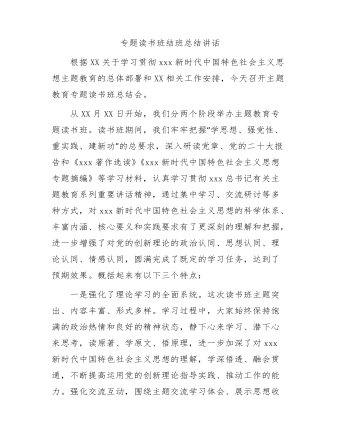
主题教育专题读书班结班总结讲话
第二,要把调查研究贯穿始终,实干担当促进发展。开展好“察实情、出实招”“破难题、促发展”“办实事、解民忧”专项行动,以强化理论学习指导发展实践,以深化调查研究推动解决发展难题。领导班子成员要每人牵头XX个课题开展调查研究,XX月底前召开调研成果交流会,集思广益研究对策措施。各部门、各单位要制定调研计划,通过座谈访谈、问卷调查、统计分析等方式开展调查研究,解决工作实际问题,帮助基层单位和客户解决实际困难。第三,要把检视问题贯穿始终,廉洁奉公树立新风。认真落实公司主题教育整改整治工作方案要求,坚持边学习、边对照、边检视、边整改,对标对表xxx新时代中国特色社会主义思想,深入查摆不足,系统梳理调查研究发现的问题、推动发展遇到的问题、群众反映强烈的问题,结合巡视巡察、审计和内外部监督检查发现的问题,形成问题清单。










